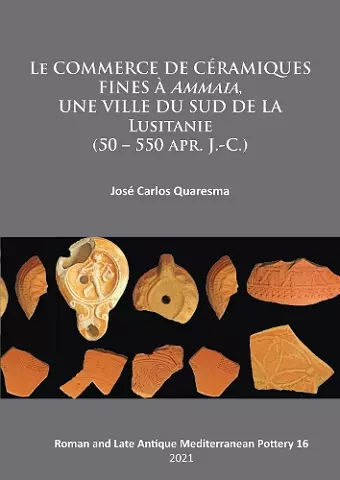Le commerce de céramiques fines à ammaia, une ville du sud de la Lusitanie (50 – 550 apr. J.-c.)
Format:Paperback
Publisher:Archaeopress
Published:13th May '21
Should be back in stock very soon

This volume presents the entire assemblage of fine wares (terra sigillata, lamps and thin-walled wares) from Ammaia, a Roman and Late Antique town located in the hinterland of southern Lusitania (presently in Portuguese territory). Despite its distance from the Atlantic coast, Ammaia took advantage of its proximity to Augusta Emerita, the capital of Lusitania. This aspect is particularly strong between c. AD 50 and c. AD 150, when the local market imported large quantities of fine wares from the capital. The Late Antique phase reveals a balanced capacity of importation at Ammaia, whose fine wares, essentially related to terra sigillata, were provided by wares from northern Hispania (Douro and Ebro valleys) and North Africa (Tunisia). Moreover, recent research at Ammaia has provided excellent stratigraphic contexts dated to between c. AD 50 and c. AD 150, crucial for the understanding of the chronological evolution of Italian, South-Gaulish and Hispanic terra sigillata. In the final chapter, the author undertakes a wide-ranging analysis of southern Lusitania with regard to the consumption of fine wares and amphorae. Several chronological phases have been established, based on stratigraphic and typological evidence, for the period between c. AD 50 and c. AD 550: that is the Early Empire (from the Claudio-Neronian period onwards) and its transition into the Late Roman period and the post-Roman phase. In the final sub-chapters, this analysis focuses on the problematic 5th century and up to the latest Lusitanian stratigraphic evidence of around the middle of the 6th century AD.
ISBN: 9781789696837
Dimensions: 297mm x 210mm x 12mm
Weight: 860g
228 pages